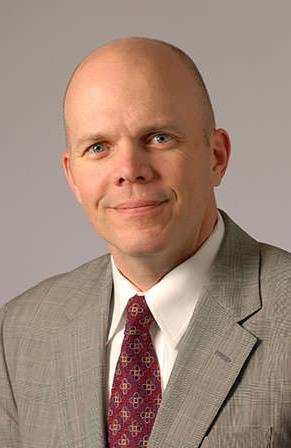
Nicholas J. Zyromski, MD
Professor of Surgery
- nzyromsk@iu.edu
- Phone
- 317-944-5012
- Address
-
EH 5th Floor
SGEN
IN
Indianapolis, IN - PubMed:
-

Bio
Dr. Nicholas Zyromski is a general surgeon in Indianapolis, Indiana and is affiliated with multiple hospitals in the area, including Indiana University Health Medical Center and Richard L. Roudebush Veterans Affairs Medical Center. He received his medical degree from University of Toledo College of Medicine and has been in practice between 11-20 years. He is one of 89 doctors at Indiana University Health Medical Center and one of 20 at Richard L. Roudebush Veterans Affairs Medical Center who specialize in General Surgery.
Fellowship - Indiana University School of Medicine, Indianapolis, IN 2005-2006
Residency - Medical College of Ohio, Toledo, OH 2001-2004
Fellowship - Mayo Clinic Foundation, Rochester, MN 1999-2001
Residency - Medical College of Ohio, Toledo, OH 1997-1999
M.D. - Medical College of Ohio, Toledo, OH 1993-1997
Key Publications
Sphincter of Oddi Dysfunction After Gastric Bypass: Surgical or Endoscopic Therapy?Schwartz, P. B., Easler, J. J., Easler, J. J., Lancaster, W. P., House, M. G., House, M. G., Zyromski, N. J., Zyromski, N. J., Schmidt, C. M., Nakeeb, A., Ceppa, E. P....> ;The Journal of surgical research. 2019 Feb 10
Infected Necrotizing Pancreatitis: Evolving Interventional Strategies from Minimally Invasive Surgery to Endoscopic Therapy - Evidence Mounts But One Size Does Not Fit...Garg, P. K.,Zyromski, N. J.,Freeman, M. L.> ;Gastroenterology. 2019 Feb 19
Venous Thromboembolism in Necrotizing Pancreatitis: an Underappreciated Risk.Roch, A. M.,Maatman, T. K.,Carr, R. A.,Colgate, C. L.,Ceppa, E. P.,House, M. G.,Lopes, J.,Nakeeb, A.,Schmidt, C. M.,Zyromski, N. J.> ;J. Gastrointest. Surg.. 2019 Feb 09
| Year | Degree | Institution |
|---|---|---|
| 1997 | MD | Medical College of Ohio |
| 1991 | BA | College of Wooster |
As a gastrointestinal surgeon with a specialty in pancreas and hepatobiliary surgery, a substantial portion of my clinical practice involves caring for patients with GI and HPB malignancy. My major interest within this sub-discipline is pancreatic disease. In this context, my research goals are two:
1. Clinical research: To continue to expand and build upon an already active clinical research program within the pancreatic service. Current efforts include collaboration within the Department of Surgery pancreatic surgery group evaluating methods to improve technical considerations in surgery for pancreatic cancer as well as retrospective clinical studies utilizing Indiana University’s large volume of pancreatic cancer patients. Future directions include prospective randomized trials, evaluating optimal management for patients with pancreatic cancer including anticoagulation in the setting of superior mesenteric vein/portal venous resection. In addition, the unique position of a formal 3/8 Veterans Administration appointment will allow the candidate to pursue clinical research in pancreas and hepatobiliary oncology making use of the large nation-wide VA database. This is particularly intriguing for evaluating biliary malignancy.
2. Basic science research: The fundamental platform of my basic science laboratory program is to evaluate pancreatic disease in the context of obesity. Obesity is epidemic in America in 2007 and has been shown to be an independent risk factor both for developing severe acute pancreatitis as well as for developing pancreatic cancer. Over the past year, in efforts to get my laboratory program up and running, I have focused on the pancreatitis arm. The big picture, however, also includes the study of pancreatic cancer. This fall we have experiments planned to investigate the mechanisms by which obesity may potentiate the development of pancreatic cancer in our well-established murine model of congenital obesity. As both arms of this laboratory program mature, the ultimate goal is to provide a translational application.
Desc: Trustee Teaching Award
Scope: University
Date: 2013-05-01